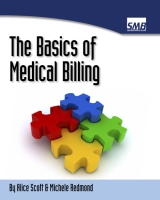Tuesday, December 16, 2008
Misconceptions of increasing accounts receivable Part 2
It actually makes a huge difference if the patient pays their copay at the time of the visit. Copays are supposed to be paid at the time of service and the patients know this. The whole point in developing copays was to make a set amount that the patient paid at the time of service. This avoids the need to wait for the insurance carrier to make payment before the patient amount can be determined and billed.
The chance of collecting the copay if it is not collected up front is greatly diminished. If you are a specialist the patient may be seen only one time. If they are not coming back to your office, if is harder to collect that copay. The patient may move out of the area. There are a lot of things that could go wrong.
Of course there is always a patient that has a very good reason for not being able to pay the copay. There is an exception to every rule. If you have a patient who comes in regularly and pays their copays regularly but for some reason is unable to pay it at this visit, it is very likely that they will pay the copay.
Copays should be collected before the patient is seen. If the patient has to wait before seeing the doctor they may be in a hurry to get out of the office once the appointment is over. Also if they receive news during the visit that is upsetting they are not going to want to stop and pay their copay. The person at the front desk should ask for the copay when the patient checks in.
Some may think that the copay doesn't add up to that much but in today's insurance world, copays are getting larger and larger and they do add up. We were in an office once where the doctor saw an entire family of five. None of the family members ever paid their copays. The doctor was not aware of this and the office manager only sent out patient bills every six months - which the family ignored. They owed the doctor over $5000 in copays and that was just one family.
Make sure your office is collecting the copays up front. It can make a big difference in the bottom line.
Medicare Credentialing - How Long Does it Take?
Many providers call me to ask how long it takes to become credentialed with Medicare. The problem is the process can vary based on a lot of things. For one, it varies from carrier to carrier. Each Medicare region has a different carrier and those carriers can switch if the contract gets awarded to a different carrier.
Our area, upstate NY had the same carrier for over 14 years and credentialing only took about six weeks. But on September 1st, 2008 the carrier changed and now credentialing takes more like 10 weeks. Part of that is due to the transition.
There is no way to give an exact time on how long it will take, but one thing that greatly affects the time is if the correct forms are filled out right the first time. If the correct form isn’t used then the form will be returned to the provider that is applying and they have to start from scratch. It could take them up to 120 days just to return the form so four months was wasted on nothing.
If the correct form is used but it is not completed correctly then they have up to 120 days to request the corrections. They usually allow 30 days for the corrections to be submitted. Once they receive them the clock starts over. If you are applying to Medicare and you want it done quickly you need to make sure you complete the correct form and complete it right. For more information on which form you need and how to complete it correctly visit http://www.medicalbillinglive.com/medicare-credentialing.shtml .
The good news is that when you complete the form you tell them when you wish to have your participation to start. So if you are submitting a credentialing application in December to begin seeing patients in January, but they don’t approve you until March, the participation date is still for January. That means that you can see patients but you must hold the billing until the application is completed. So at least you can treat the patients and you will be paid, you just have to wait for the process to complete.
There is no way to ever be sure the form is completed 100% correctly but if the person completing it has experience with these CMS forms it is more likely to be correct on the first submission. This will cut down on the time it takes for the application to be completed.



